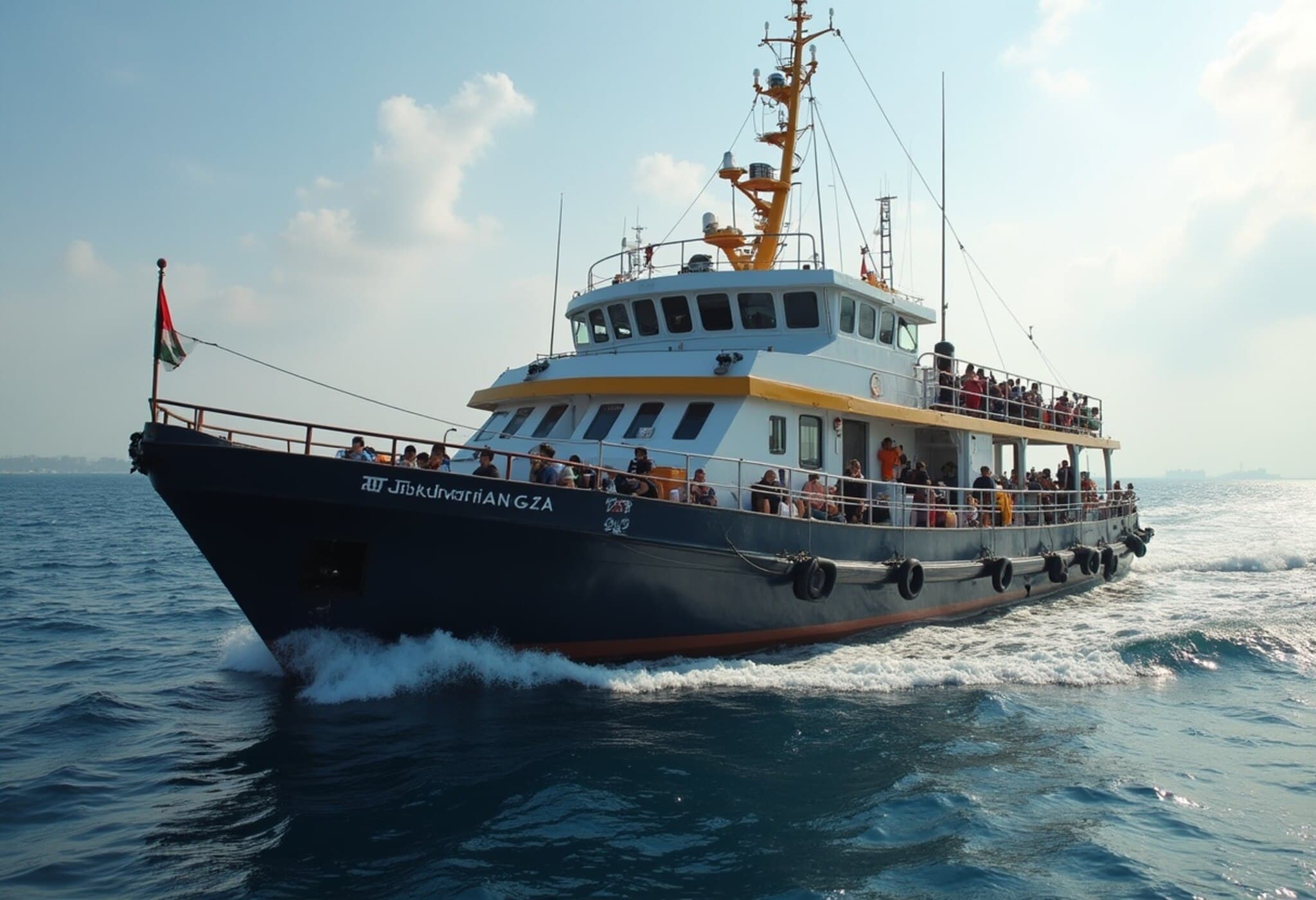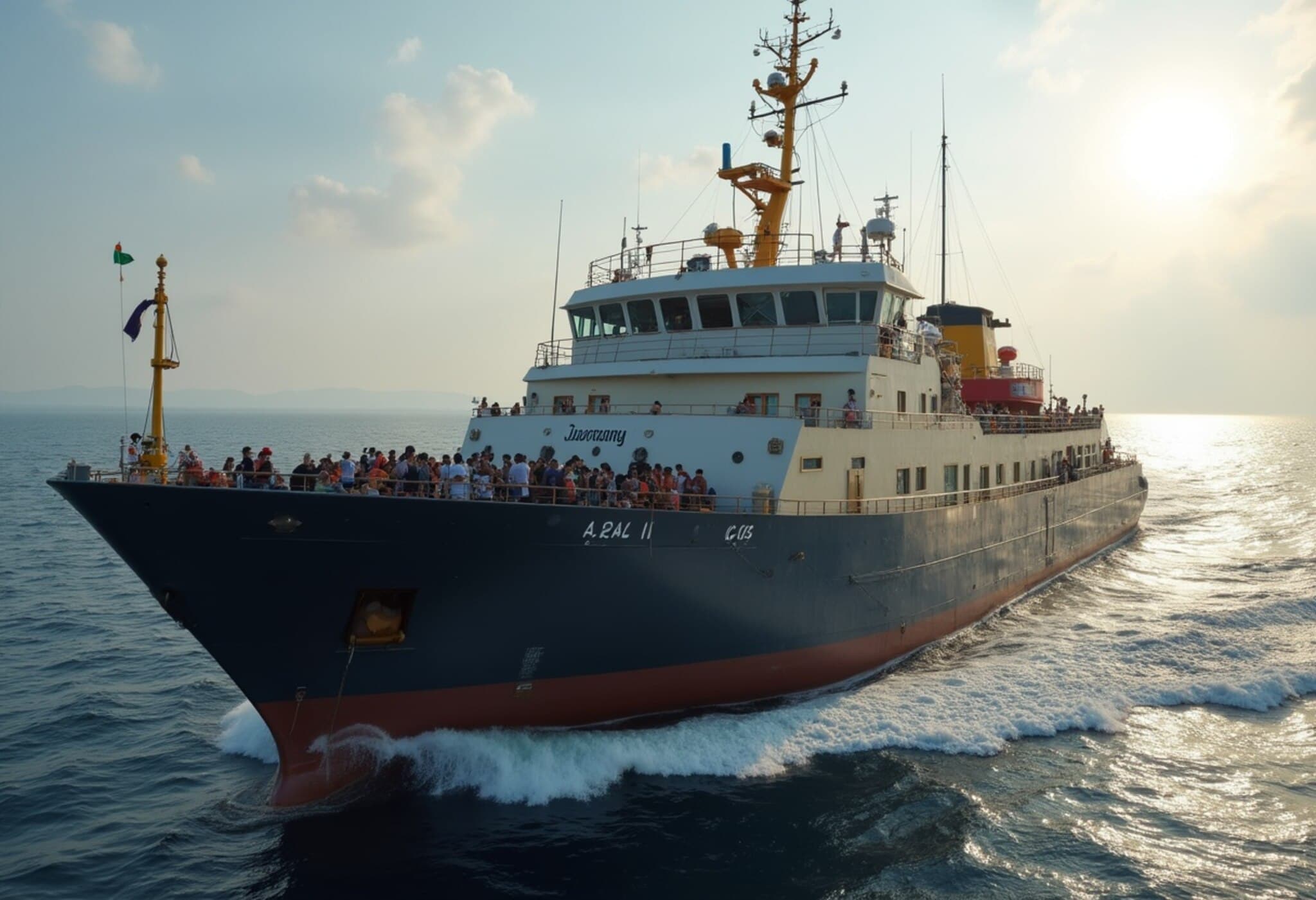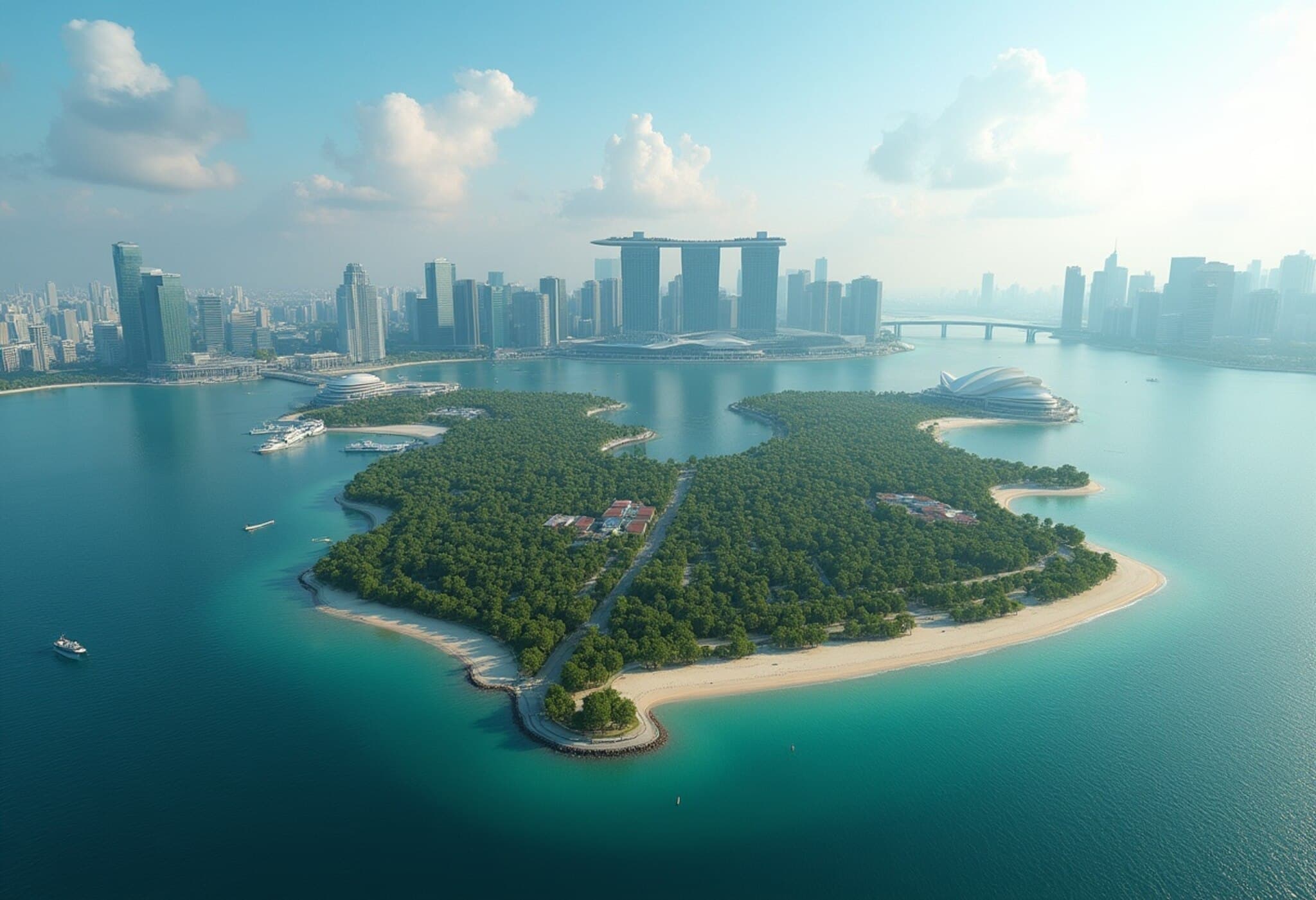Israeli Forces Detain Activist Vessel Handala Near Gaza
In a tense development late Saturday night, Israeli naval forces intercepted and towed the pro-Palestinian activist vessel Handala to Ashdod Port, after it attempted to breach the longstanding Israeli naval blockade of Gaza to deliver humanitarian aid. The vessel, carrying an international crew of 21 including two French parliamentarians and journalists, was seized in international waters, raising urgent questions on the legality of the interception under international maritime law.
Details of the Interception and Detainment
Video footage live-streamed from Handala showed Israeli troops boarding the boat just before midnight local time. According to an AFP journalist on site, the vessel was then escorted to the port of Ashdod. While the Israeli foreign ministry stated the move was intended to prevent the ship from entering Gaza’s territorial waters, human rights groups condemn the action as a violation of international law.
Legal Access Denied Amid Calls for Transparency
Adalah, a legal center advocating for the rights of Arab citizens in Israel, confirmed their lawyers were on the ground in Ashdod seeking access to the detained crew. However, despite repeated legal requests, Israeli authorities have reportedly refused to allow any direct consultations, fueling concern over the detainees’ treatment and due process rights.
Adalah emphasized the peaceful nature of the mission, intended solely to break what it labels as the "illegal blockade" restricting Gaza, a humanitarian lifeline crucial to the Palestinian population. The refusal to grant legal access extends broader questions about Israel’s adherence to international human rights obligations in contested maritime zones.
A Diverse Group of Activists United for Gaza Aid
The Handala’s crew hailed from ten different countries, illustrating the global solidarity movement with Gaza’s residents. Among them were Emma Fourreau and Gabrielle Cathala, left-wing French members of parliament from the France Unbowed party, alongside American, European, and Arab activists. Several journalists, including two from Al Jazeera, were also on board to document the endeavor.
Prior to their capture, the activists vowed to commence a hunger strike if detained, underscoring their commitment and the high stakes involved in this maritime protest.
Contextualizing the Blockade and Freedom Flotilla Efforts
The Handala incident echoes prior maritime activism, notably the interception of the Madleen vessel on June 9, 2025, which was similarly seized in international waters and towed to Ashdod. Notably, that mission included prominent environmental advocate Greta Thunberg, highlighting the intersection of humanitarian and youth-led global movements.
The Israeli blockade of Gaza, deemed necessary by Israel for security reasons, is internationally controversial, with critics arguing it exacerbates humanitarian crises. These Freedom Flotilla missions aim to draw global attention to Gaza’s isolation while delivering aid, despite the risks of interception and detention.
Expert Commentary: Navigating Maritime Law and Human Rights
Maritime law experts stress that intercepting vessels in international waters without clear legal grounds can breach international conventions, including the United Nations Convention on the Law of the Sea (UNCLOS). The detention of peaceful activists raises significant legal and ethical concerns, particularly regarding rights to humanitarian aid and freedom of navigation.
In American legal and policy discourse, this incident resonates with ongoing debates about balancing national security with upholding international norms and humanitarian principles. The U.S. government’s position on such flotilla missions is often influenced by its strategic alliance with Israel, but also by advocacy pressures emphasizing human rights.
Looking Ahead: Critical Questions Remain
- What legal precedents govern Israel’s interception of vessels in international waters, and how do they align with international maritime law?
- How will the treatment and legal access of detained activists impact international perceptions of Israel’s blockade policy?
- What role can international bodies, such as the UN, play in mediating such standoffs to protect humanitarian interests?
- How might continued activism reshape global awareness and policy toward Gaza’s humanitarian situation?
Editor’s Note
The seizure of the Handala vessel poignantly highlights the fragile intersection of activism, international law, and geopolitical conflict. While security concerns underpin Israel’s blockade strategy, activists’ efforts reveal deep humanitarian fissures demanding urgent attention. As this story unfolds, it invites readers to reflect on the complex balance between national sovereignty, human rights, and the power of peaceful protest on the global stage.












